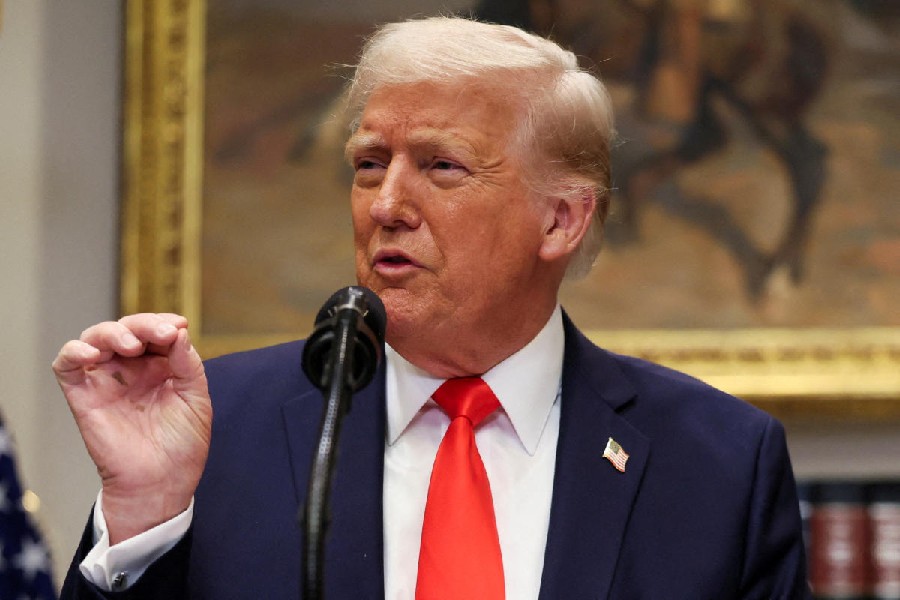The government on Wednesday approved a Rs 670 crore recapitalisation plan for regional rural banks (RRBs) for the next financial year to help them meet their regulatory capital requirements.
The Cabinet Committee on Economic Affairs, chaired by Prime Minister Narendra Modi, has given its approval for the continuation of the process of recapitalisation of RRBs by providing minimum regulatory capital to RRBs for another year beyond 2019-20 — up to 2020-21 — for those RRBs which are unable to maintain minimum Capital to Risk weighted Assets Ratio (CRAR) of 9 per cent, as per the regulatory norms prescribed by the RBI.
“The CCEA also approved the utilisation of Rs 670 crore as central government share for the scheme of Recapitalisation of RRBs (i.e. 50 per cent of the total recapitalisation support of Rs 1,340 crore), subject to the condition that the release of Central Government's share will be contingent upon the release of the proportionate share by the sponsor banks,” an official statement said.
As per the law, the Centre holds 50 per cent stake in RRBs, while 35 per cent and 15 per cent are with the concerned sponsor banks and state governments, respectively.
These banks were formed under the RRB Act, 1976 with the objective to provide credit and other facilities to small farmers, agricultural labourers and artisans in rural areas. The statement further said a financially stronger and robust RRBs with improved CRAR will enable them to meet the credit requirement in rural areas.
According to RBI guidelines, the RRBs have to provide 75 per cent of their total credit under Priority Sector Lending. RRBs are primarily catering to the credit and banking requirements of agriculture sector and rural areas with a focus on small and marginal farmers, micro & small enterprises, rural artisans and weaker sections of the society.
In addition, RRBs also provide lending to micro/small enterprises and small entrepreneurs in rural areas.
With the recapitalisation support to augment CRAR, RRBs will be able to continue their lending to these categories of borrowers under their PSL target, and thus, continue to support rural livelihoods. Consequent upon the RBI’s decision to introduce disclosure norms for CRAR of RRBs with effect from March 2008, a committee was set up under the chairmanship of K.C. Chakrabarty.
Export refund
The cabinet also gave its approval for the continuation of rebate of state and central taxes and levies (RoSCTL) from April 1, 2020, till the scheme is merged with Remission of Duties and Taxes on Exported Products (RoDTEP).
“RoSCTL scheme for apparel and made-ups will be continued with effect from 1st April, 2020 without any change in scheme guidelines and rates as notified by Ministry of Textiles till such time that the RoSCTL is merged with RoDTEP,” an official statement said.
Consequent upon the RBI’s decision to introduce disclosure norms for Capital to Risk Weighted Assets Ratio (CRAR) of RRBs with effect from March 2008, a committee was set up under the chairmanship of K.C. Chakrabarty.
Based on the committee’s recommendations, a scheme for recapitalisation of RRBs was approved by the cabinet in its meeting held on February 10, 2011 to provide recapitalisation support of Rs 2,200 crore to 40 RRBs with an additional amount of Rs 700 crore as a contingency fund to meet the requirement of the weak RRBs, particularly in the north eastern and eastern region.
Export refund
The cabinet also gave its approval for the continuation of rebate of state and central taxes and levies (RoSCTL) from April 1, 2020, till the scheme is merged with Remission of Duties and Taxes on Exported Products (RoDTEP).
“RoSCTL scheme for apparel and made-ups will be continued with effect from 1st April, 2020 without any change in scheme guidelines and rates as notified by Ministry of Textiles till such time that the RoSCTL is merged with RoDTEP,” an official statement said.











